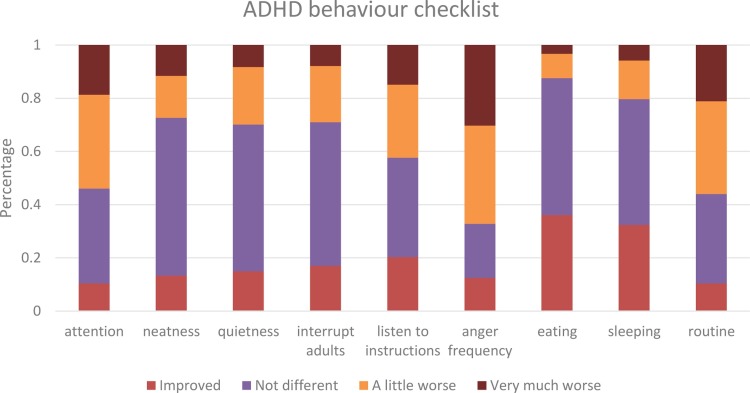Executive functioning & COVID-19
The number of individuals struggling with attention-deficit/hyperactivity disorder (ADHD) today is underrepresented. The CDC estimates that there are four million children diagnosed with ADHD between the ages of six and eleven, and three million children between the ages of twelve and seventeen. Of the 20+ million students attending college this year, roughly 19.4% will report having a disability. 79% of these students will have ADHD. This means a college student population of almost three million struggling with ADHD. According to a 2021 study, college-aged students with ADHD “are at higher than average risk for dropping out of college and require academic support prior to and throughout their college years.”
Executive functioning skills that need strengthening
The prefrontal cortex, the area of the brain for high function thinking, is impacted in individuals with ADHD. This may be one of the reasons for lower graduation rates. The executive functioning skills that individuals with ADHD need to strengthen are:
- Emotional and impulsive controls
- Flexible thinking
- Working memory
- Self-monitoring
- Prioritizing and accountability
- Task initiation
- Organization and time-management
Consequently, it is almost inevitable for students to get overwhelmed as they try to take in so much information on their own. Students with ADHD often need individualized education plans to find a path to success. Victory looks different for everyone.
Students with ADHD often struggle with qualities of low self-esteem, impulsivity, poor grades, and inattentiveness. In addition, the ongoing stressor of navigating COVID and being switched to remote learning is a lot to process. Using Thrivister’s COPE Method, we work with students to develop their executive functions skills so that they don’t feel so overwhelmed.
Pandemic challenges for children with ADHD
There are few studies concerning the impact of COVID-19 on children with ADHD within the educational system. One of these studies, however, carried out by researchers in China, examined children with ADHD’s behavior in response to remote learning and social distancing. The study examined how the symptoms of children with ADHD have progressively worsened as a result of the pandemic. The psychological well-being of adolescents is at risk because of a lack of daily routines and social interaction. Many of these simple daily tasks are what keep people grounded and moving forward in life. The absence of these routines and minimal options for socialization will only increase an individual’s symptoms of depression and anxiety.

For individuals with ADHD, the pandemic has truly brought their struggles to the surface, as people are encouraged or mandated to stay away from social events, grocery shop only when necessary, and avoid public gyms. The strain of having to adapt to a new normal is stressful beyond compare, and our ‘flight, fight, or freeze response’ may kick in. Because of this, we are left feeling like we’ve come across a major obstacle to our happiness. Therefore, more support for these adolescents is needed as “most of the parents of these children can be assumed not to be the domain experts, but are forced upon the educational responsibility in addition to handling all the children’s emotional and behavioral problems 24/7”. With a lack of public outlets, children are going stir crazy in the household.
Research on COVID-19 & children with ADHD
In order to learn more about COVID-19 and the effect on behavior in children with ADHD, researchers conducted a study on 241 parents of children diagnosed with ADHD between the ages of six and fifteen. Parents were asked to rate their child’s behavior in comparison to their normal, pre-pandemic state (see graph below). Results indicate that children’s behavior was reported to have significantly worsened as a result of the outbreak and lockdown. Additionally, it’s interesting to note that the study found that the parent’s mood may also affect children’s ADHD symptoms.
However, there were a few research limitations such as the parental feedback on the children’s behavior rather than the children rating their own behavior, and the inability to mention if ADHD medication was a factor for some children. Despite these limitations, the results from the study indicate that there is a need for a strong call to action within our education system. In conclusion, remote learning is anything but ideal, and parents are finding it difficult to give their children the support they need.


7 Trailblazing Celebrities and Icons Living & Thriving with ADHD
Explore the inspiring journeys of 7 influential individuals who have harnessed their ADHD to achieve greatness and make a lasting impact.

Unveiling the Complexities of ADHD: Insights from Dr. David Pomeroy
Unveiling the Complexities of ADHD: Insights from Dr. David Pomeroy https://youtu.be/EotABukIxlo Attention Deficit Hyperactivity Disorder (ADHD) is a multifaceted condition that impacts millions of lives

Navigating ADHD in Teens: Insights from MFT, Kelsey Thompson
Navigating ADHD in Teens: Insights from MFT, Kelsey Thompson https://youtu.be/omQndscdD5U In a recent interview with Kelsey Thompson, a seasoned Marriage and Family Therapist at The

Unlocking Potential: A Glimpse into Fusion Academy’s Personalized Education Model
Unlocking Potential: A Glimpse into Fusion Academy’s Personalized Education Model https://youtu.be/R7BgYW6A6k4 In the bustling world of education, where traditional models often struggle to meet the

Embracing Diversity: Navigating Support for Disabilities in Education
Accommodations in college and beyond come mainly from Section 504, which covers conditions as varied as anxiety and ulcerative colitis, ADHD and asthma, quadriplegia, and cancer. As more students qualify for disability accommodations and feel empowered to take them, long-stigmatized diagnoses have transformed into points of identification and affinity.

Sacramento Country Day School
A beautiful, expansive campus specifically developed to serve Pre-K through 12th grade students across our Lower, Middle, and High School. Small class sizes and a dynamic learning environment offer our students opportunities to discover and joyfully pursue their unique strengths.

Meristem
Meristem is a unique program dedicated to preparing neurodiverse young adults for a life of greater independence and fulfillment. We are located near Sacramento, California, on a 13-acre campus in Fair Oaks. Meristem students are young adults, between the ages of 18-28, who show the potential to achieve greater independence and self-sufficiency upon graduation. They often have aspirations for career and/or college, and are willing to discover and work towards their passions and goals. Space is currently available to live on-campus and gain independent living and social skills while attending our day program or pursuing college or employment goals. Ask about scholarships opportunities for families eligible for financial assistance.

